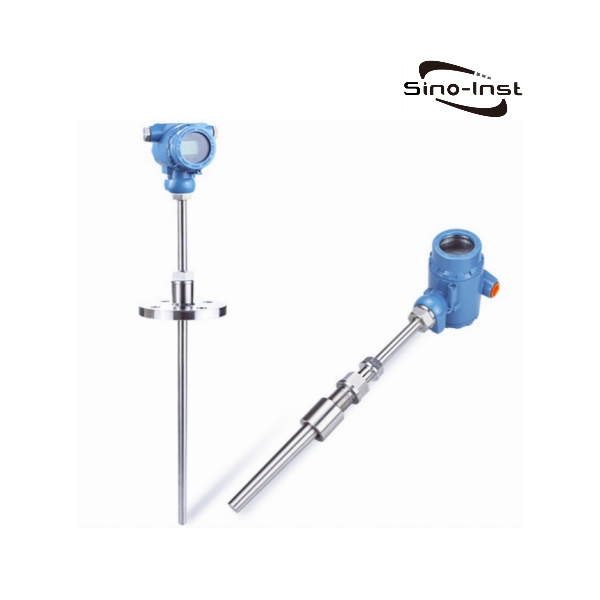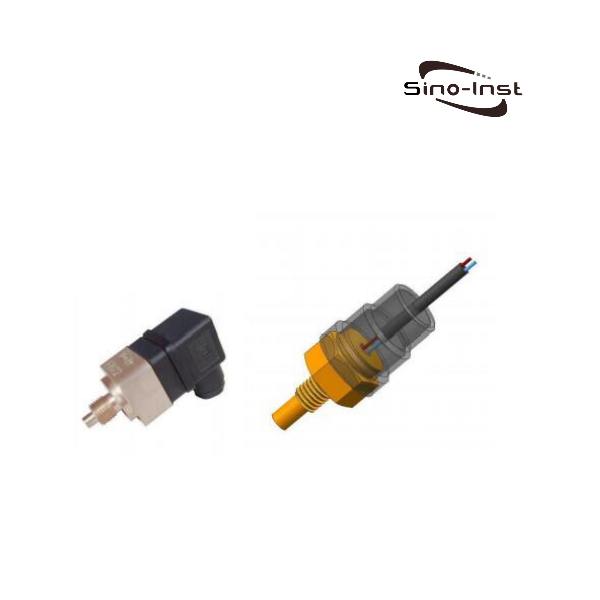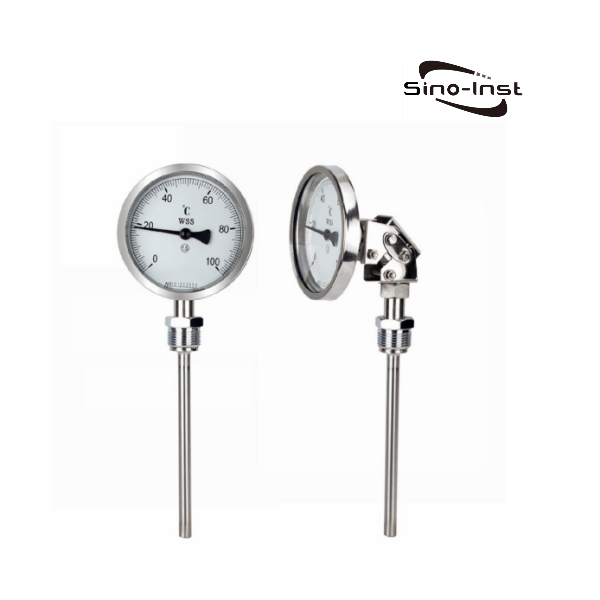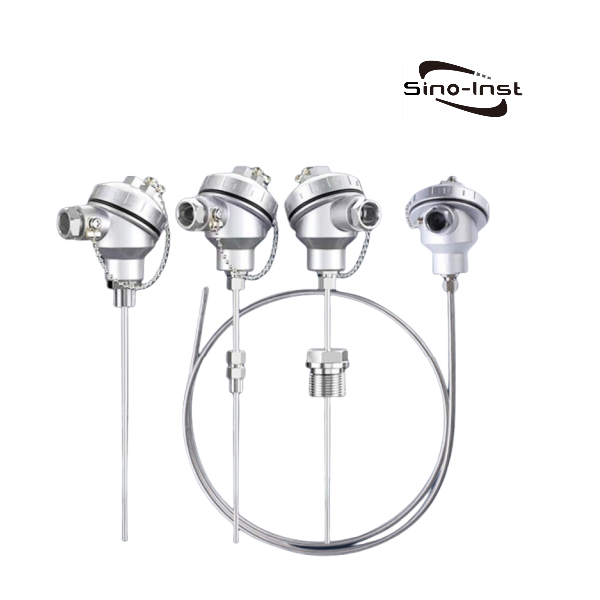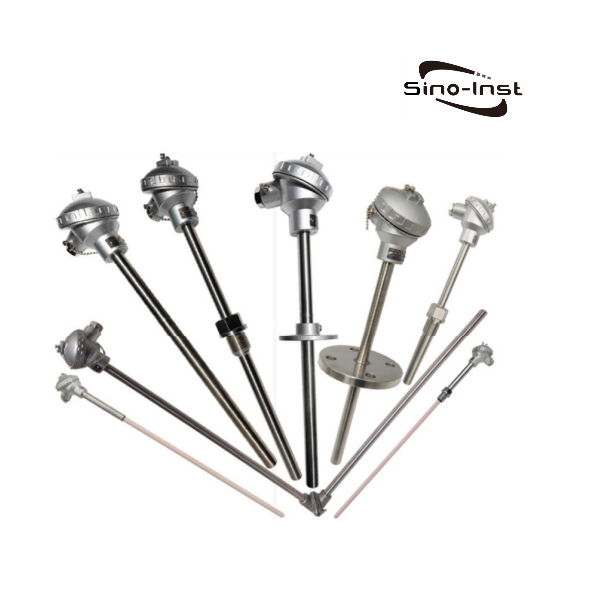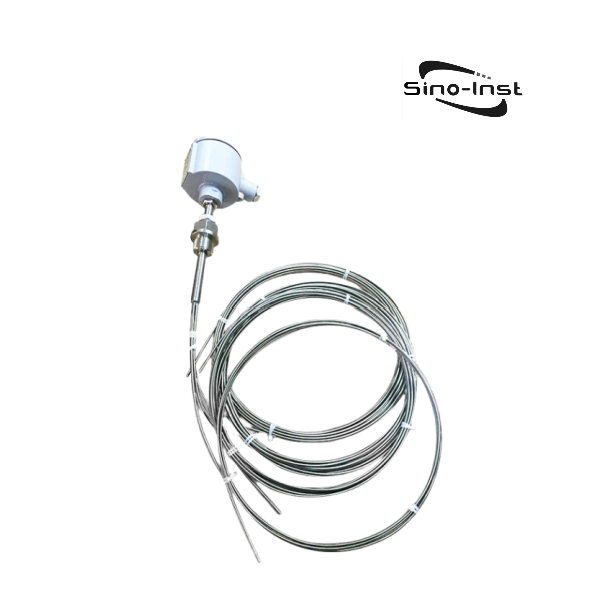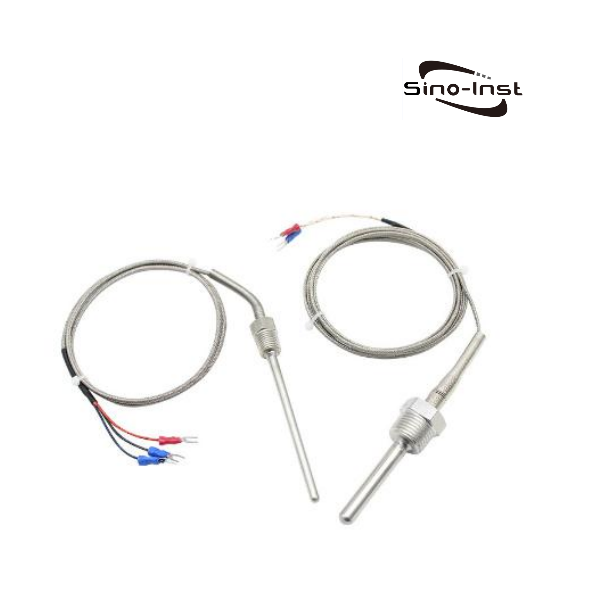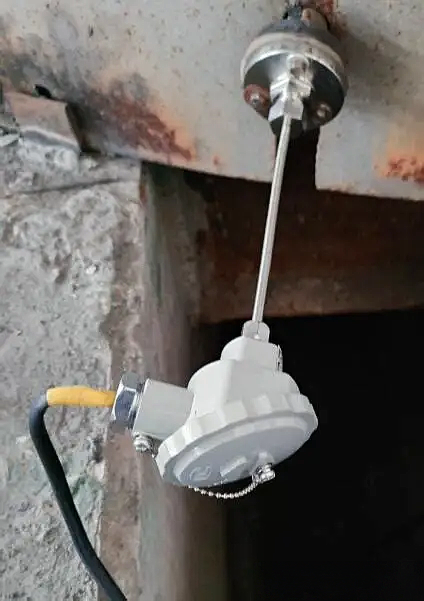
Thermometers are common temperature measuring devices in our daily lives. They can measure the temperature of solids, liquids, or gases. They are used in a variety of fields, including healthcare, industrial production, and food safety. The three most common units of temperature measurement are Celsius, Fahrenheit, and Kelvin.
Our Sino-Inst industrial thermometers offer flexible configurations. We offer a variety of sensors, thermowells, connector housings, and a full range of temperature transmitters. We also support custom mounting sizes.
What is a Thermometer?
A thermometer is a device that measures temperature or temperature gradients. Common thermometers include mercury-in-glass, electronic, and infrared types. They are widely used in medicine, industry, and everyday life.
Industrial thermometers are used to measure temperature in industrial production. They can measure gases, liquids, and solids. The temperature range is -200°C to +1300°C. They primarily utilize the thermal expansion principle of a bimetallic strip. They are widely used in industries such as metallurgy, electricity, and food.
Featured Thermometers
We offer a wide variety of thermometers. The following are some of our most popular thermometers:
Applications of Industrial Thermometers
- Metallurgical Industry. Used to monitor the temperature of the molten metal bath in electric arc furnaces.
- Power Industry. Used to record the operating temperatures of equipment such as boilers and gas turbines.
- Energy Generation. Used for biomass and coal.
- Chemical Industry. Used for gasification furnaces.
- Industrial Furnaces. Used for waste incinerators.
- Glass Furnaces.
- Steel Production.
- Scientific Research Experiments.
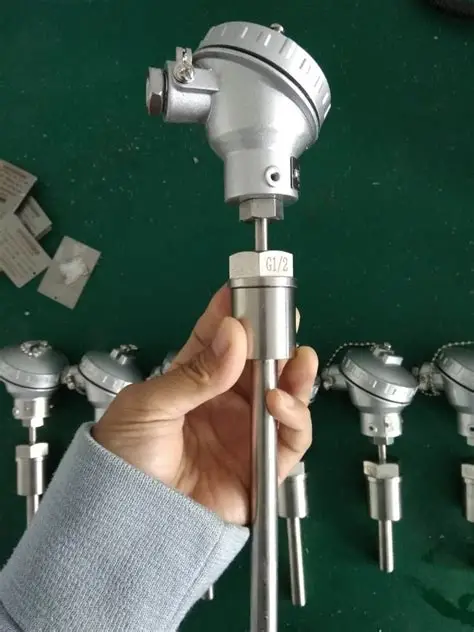
Benefits
Which type of thermometer is most widely used in the food industry?
Temperature sensors are used in various fields. They are simple to produce, inexpensive, and highly sensitive. They play a vital role in food production processes.
For example, when making food, you need to know the temperature of the wok during the cooking process. Only when the temperature is right can you make delicious food. This requires a temperature sensor to monitor the work’s temperature.
Platinum and copper are the two most widely used temperature sensor materials in the food industry. Platinum resistors offer high precision and excellent stability. Their rate of resistance change decreases with increasing temperature. They are suitable for measuring neutral and oxidizing media.
Copper resistors, on the other hand, have a resistance value that changes closely with temperature within their measurement range. They are therefore more suitable for measuring non-corrosive media.
What is the difference between an NTC and an RTD?
Both RTD and NTC thermistors are resistance-type temperature sensors. That is, their resistance value changes with temperature according to a certain pattern. RTD is a resistive temperature sensor. NTC is a thermistor with a negative temperature coefficient. The main differences between them are as follows:
Differences in Operating Principles
An NTC’s resistance decreases as temperature increases, exhibiting a negative temperature coefficient. It responds quickly to temperature changes and is suitable for rapid temperature detection.
An RTD’s resistance increases as temperature increases, exhibiting a positive temperature characteristic. A 3-wire or 4-wire circuit configuration is required to eliminate lead resistance errors.
| Features | NTC | RTD |
| Temperature measurement range | Typically -50°C to +150°C. Some ranges extend from -90°C to 200°C. | -200 ~ 650°C |
| Accuracy | ±0.1°C to ±1°C | ±0.15°C |
| Response speed | 0.12 to 10s | 3 to 30s |
| Linearity | Exponential | Linear |
| Long-term stability | 0.2°C | less than 0.05°C |
| Materials | Metal oxides such as manganese, cobalt, nickel, and copper | Precious metals such as platinum and nickel |
| Cost | Low | High |
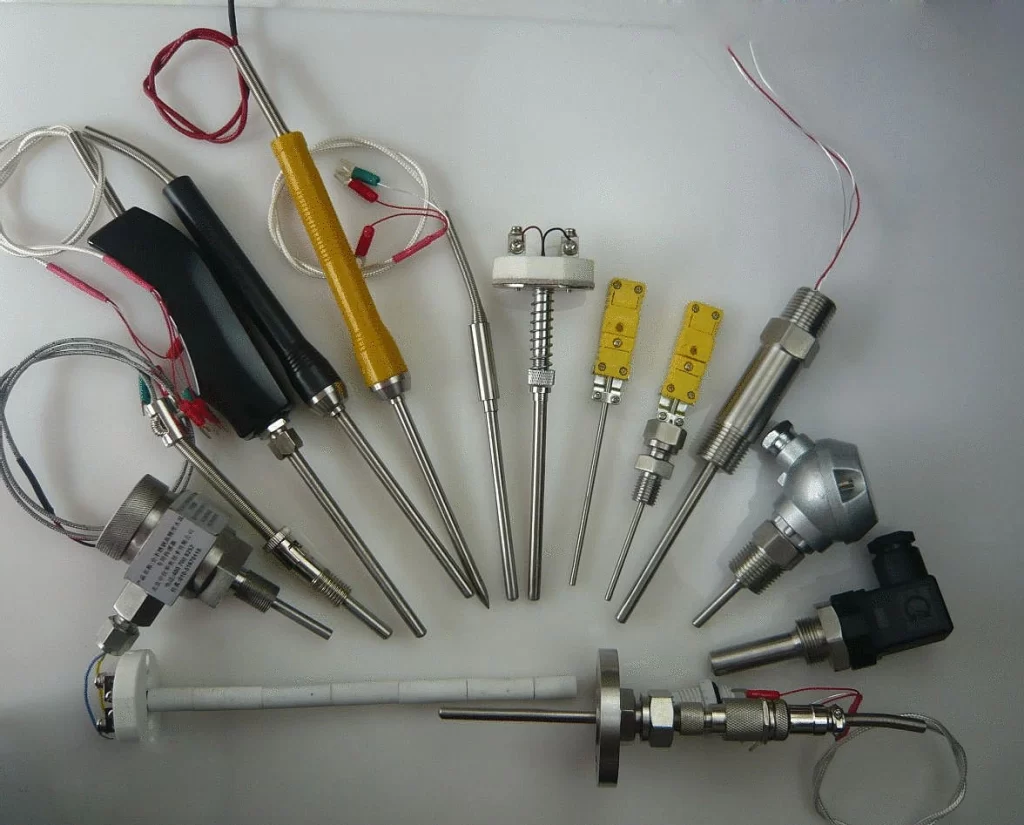
More Temperature Measurement Solutions
Thermometers aren’t just instruments for measuring temperature in everyday life. They also play a vital role in industrial applications. Our sanitary thermometers are designed specifically for measuring temperature in applications such as food, beverages, and pharmaceuticals. Our sanitary temperature sensors offer a 4-20mA signal output. The meter housings are available in stainless steel, plastic, or aluminum.
Our Sino-Inst sanitary temperature sensors are customizable. These include insertion depth, mounting chuck dimensions, and more. In addition to sanitary temperature sensors, we also offer a wide range of industrial-grade thermocouples, RTDs, temperature transmitters, and other products. They are widely used in industrial process control, petroleum, chemical, and other industries.
If you have any purchasing needs or technical questions, please contact our sales engineers!
-1.jpg)
